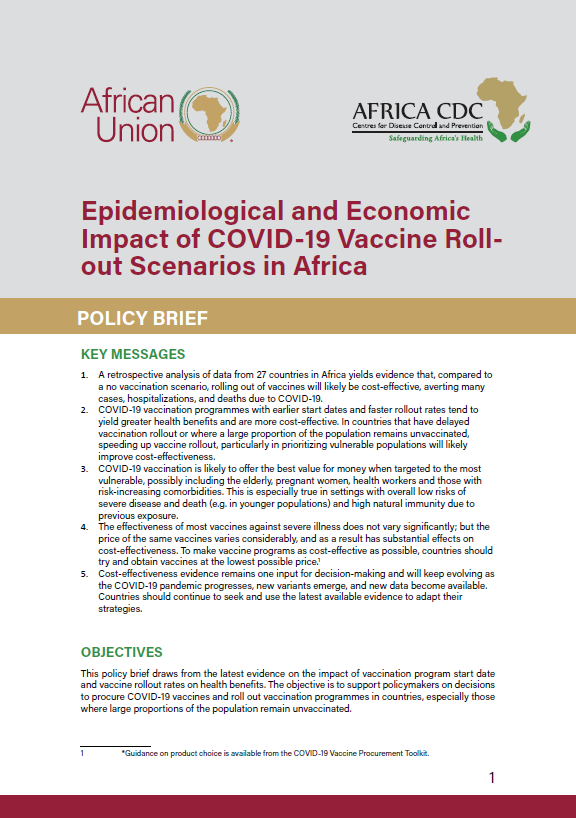KEY MESSAGES
1. A retrospective analysis of data from 27 countries in Africa yields evidence that, compared to a no vaccination scenario, rolling out of vaccines will likely be cost-effective, averting many cases, hospitalizations, and deaths due to COVID-19.
2. COVID-19 vaccination programmes with earlier start dates and faster rollout rates tend to yield greater health benefits and are more cost-effective. In countries that have delayed vaccination rollout or where a large proportion of the population remains unvaccinated, speeding up vaccine rollout, particularly in prioritizing vulnerable populations will likely improve cost-effectiveness.
3. COVID-19 vaccination is likely to offer the best value for money when targeted to the most vulnerable, possibly including the elderly, pregnant women, health workers and those with risk-increasing comorbidities. This is especially true in settings with overall low risks of severe disease and death (e.g. in younger populations) and high natural immunity due to previous exposure.
4. The effectiveness of most vaccines against severe illness does not vary significantly; but the price of the same vaccines varies considerably, and as a result has substantial effects on cost-effectiveness. To make vaccine programs as cost-effective as possible, countries should try and obtain vaccines at the lowest possible price.
5. Cost-effectiveness evidence remains one input for decision-making and will keep evolving as the COVID-19 pandemic progresses, new variants emerge, and new data become available. Countries should continue to seek and use the latest available evidence to adapt their strategies.
OBJECTIVES
This policy brief draws from the latest evidence on the impact of vaccination program start date and vaccine rollout rates on health benefits. The objective is to support policymakers on decisions to procure COVID-19 vaccines and roll out vaccination programmes in countries, especially those
where large proportions of the population remain unvaccinated.
